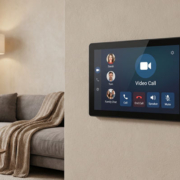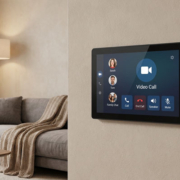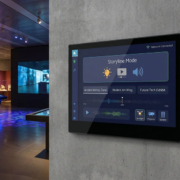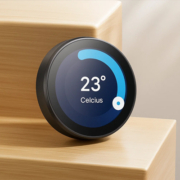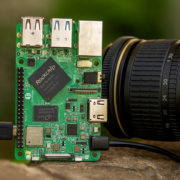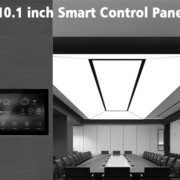What is the Difference Between COM and SoM?
Although COM (Computer on Module) and SoM (System on Module) are often used interchangeably, there are subtle differences in scope, design intent, and complexity. Let’s break it down:
Definition
SoM – System on Module
- A SoM includes a microprocessor or microcontroller, memory (RAM, Flash), and basic interfaces (I/O, UART, SPI, I2C, etc.).
- It is designed for deeply embedded systems, such as smart home panels, IoT devices, and custom industrial equipment.
- It often works closely with a custom carrier board for final deployment.
COM – Computer on Module
- A COM is a more powerful module, closer to a full PC in a small form factor.
- Typically includes higher-end processors (x86, ARM Cortex-A), RAM, storage, GPU, networking, and video output capabilities.
- Suited for systems requiring multimedia, OS like Linux/Windows, and often targets HMI, kiosks, automotive, or industrial PCs.
Use Cases
| Use Case | SoM | COM |
|---|---|---|
| Smart Home Panels | ✅ Often used | ❌ Overkill |
| Industrial Gateways | ✅ Ideal | ✅ Suitable |
| Multimedia Kiosks | ❌ Limited processing | ✅ Preferred |
| Wearables & IoT Sensors | ✅ Very common | ❌ Too bulky/power-hungry |
| Edge AI Devices | ✅ (Light AI) | ✅ (Heavy AI/Video Processing) |
| Automotive Infotainment | ❌ Not powerful enough | ✅ Often used |
Complexity and Power
| Category | SoM | COM |
|---|---|---|
| Processor | ARM Cortex-A/M, RISC | ARM Cortex-A72/A76 or x86 |
| OS Support | RTOS, Linux, Android | Linux, Windows, Android |
| Graphics Support | Basic UI or none | HD video, GPU acceleration |
| Power Consumption | Low to ultra-low | Moderate to high |
| Size | Very compact | Larger, needs heat management |
Form Factor & Integration
- SoM usually comes in solderable or pluggable compact formats (e.g., castellated edge, SODIMM).
- COM often follows standardized form factors like Qseven, SMARC, COM Express, and requires heat sinks or active cooling.
Which One Should You Choose?
| Your Need | Recommendation |
|---|---|
| Low power, custom design, embedded control logic | SoM |
| Multimedia, networking, general-purpose OS | COM |
| Fast prototyping with scalable compute | SoM or COM (depends on requirements) |
Portworld’s Focus: SoM for Embedded Devices
At Portworld, we specialize in System on Module (SoM) solutions designed for smart home control panels, IoT automation, and embedded touch interfaces. Our SoMs balance compact size, Android/Linux support, and rich I/O, making them ideal for OEM/ODM smart hardware products.
Need more computing power? We also offer SBC (Single Board Computer) options like PortPi, bridging the gap between SoM and COM flexibility.
While SoM and COM share similarities, the main difference lies in their performance target and application domain:
- Choose SoM for compact, embedded systems with specific I/O and low power.
- Choose COM when you need PC-like performance in a modular form.
If you’re building smart control systems, embedded GUIs, or intelligent interfaces—SoM is typically the more efficient, scalable, and cost-effective option.

